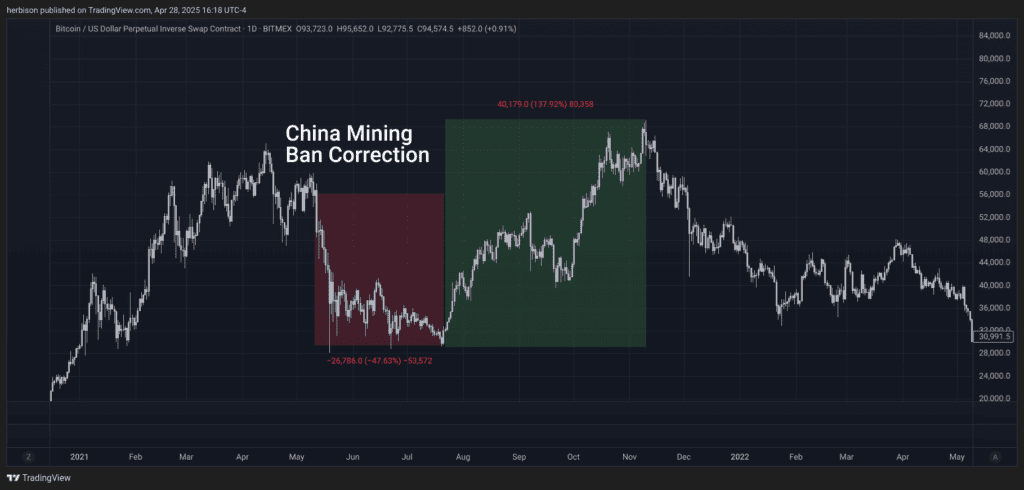A groundbreaking study from the Cambridge Centre for Alternative Finance (CCAF) claims that the United States now dominates Bitcoin mining, controlling as much as 75.4% of the global hashing power. “The U.S. has solidified its position as the largest global mining hub (75.4% of reported activity),” the CCAF reports, based on a survey of 49 mining firms representing nearly half the Bitcoin network’s hashrate.
This concentration, equating to roughly 600 exahashes per second (EH/s) of the global 796 EH/s, raises a pressing concern: Is Bitcoin mining becoming dangerously centralized in the U.S., and what risks does this pose for the emerging asset’s future?
Howard Lutnick, U.S. Secretary of Commerce and former CEO of Cantor Fitzgerald, recently shared insights into the Trump administration’s vision to position the U.S. as a Bitcoin superpower. “It’s like gold. To me. It’s a commodity,” Lutnick said in an interview with Frank Corva of Bitcoin Magazine, highlighting Bitcoin’s fixed supply of 21 million coins. He outlined plans to “turbocharge” U.S. mining through the Commerce Department’s Investment Accelerator, which streamlines permits for miners to build off-grid power plants. “You can build your own power plant next to [your data center]. I mean, think about that for a second,” he said.
This pro-business stance has fueled America’s mining boom, but the CCAF’s findings suggest a downside: centralization. For years, Bitcoiners worried about China’s dominance, which peaked at 65–75% of global hashrate before its June 2021 mining ban. “In 2019, China dominated global Bitcoin mining, accounting for 65–75% of the total Bitcoin network,” a 2025 Nature Communications study notes. When China banned mining, hashrate dispersed globally, with many operations relocating to the U.S., drawn to states with abundant energy and favorable policies. This shift caused a 50% market correction but paved the way for a 130% rise toward the end of the year, demonstrating the market’s resilience.

While China’s historical hashrate concentration never led to network abuse, it was a constant concern. Now, with the U.S. holding 75% of hashrate, similar risks emerge. The Trump administration is Bitcoin-friendly, but a future administration could turn hostile, leveraging centralized hashrate to control the network. Unlike China’s ban, a future U.S. government might try to regulate or manipulate mining, using executive powers like sanctions to censor transactions — a threat amplified by mining’s concentration.
The U.S.’s federal structure offers a potential safeguard. The division of powers between states and the federal government could enable resistance to federal overreach. In states with significant mining activity, officials and the public might argue that manipulating the industry harms Bitcoin’s value, impacting investors. Such resistance could preserve the network’s integrity.
The weakening of the U.S. monetary sanctions regime might play to our advantage. Following the 2022 seizure of Russian treasuries, nations misaligned with U.S. policy have reduced U.S. bond purchases, undermining the fiat rails abused in sanctions. The Trump administration is shifting toward tariffs to control goods rather than money flows, potentially reducing the threat of monetary censorship. This pivot buys Bitcoin time, as centralized hashrate may be a soft target for federal intervention.
Nevertheless, American Bitcoiners must stay proactive. Deepening Bitcoin adoption to embed it widely in the economy and throughout the world could deter censorship, as attacks on the network would harm personal wealth, spurring backlash. History also shows miners adapt when displaced — China’s ban proved that — but governments learn. A future U.S. administration might not ban mining but seek to control it, exploiting centralization.
The Bitcoin industry faces a critical juncture. With as much as 75.4% of hashrate in the U.S., even low estimates of 50% present a centralization risk that looms large. Should we diversify globally or lean into America’s mining dominance? As Lutnick’s vision unfolds, Bitcoiners must ensure this sovereign money remains resilient, regardless of who holds power.


